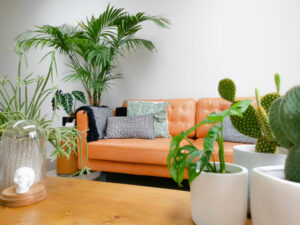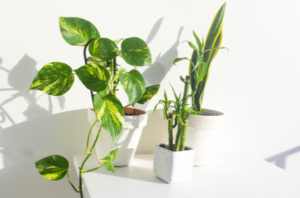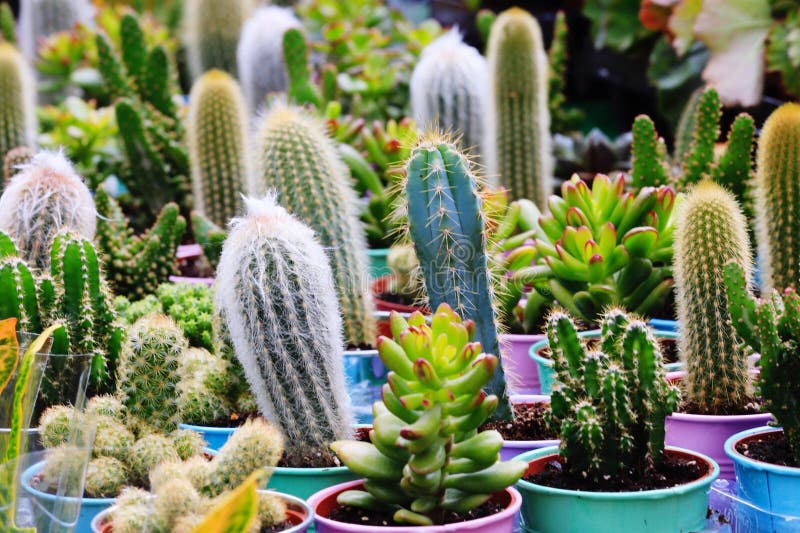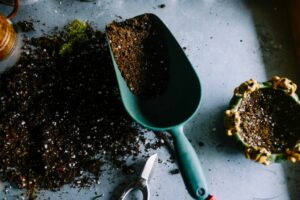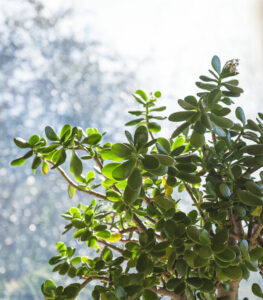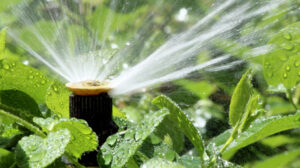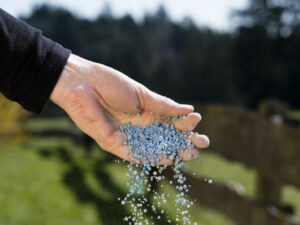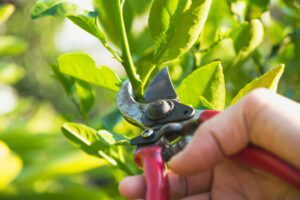HousePlantJoy is supported by our audience. When you purchase through one of our links, we may earn a small affiliate commission. As an Amazon Associate I earn from qualifying purchases. Your cost is not affected.
==================
How Long Do Houseplants Live? Do Houseplants Live Forever?
Do houseplants live forever? What if they can’t? How long can they keep living? How can we make their lives longer?
We adore the natural beauty that plants give to our lives. Houseplants add more comfort and aesthetic value to our homes and work environments. The simple presence of indoor gardens encourages and uplifts us. Most people prefer to work and live in landscaped greenery. Who would not love to, right? Plant enthusiasts frequently seek clarification, “Do houseplants live forever?“
These plants improve the overall appearance of our living space, relieve stress, and improve our mood. They also reduce air pollution and boost creativity. Indoor plants exceed expectations at fostering a positive and healthier environment for us. But do houseplants live indefinitely? If not, how long do house plants survive?
How long does a houseplant live?
Before you buy an indoor houseplant for your house, consider how long you are willing to commit because not all houseplants have the same lifespan. Knowing how long you’ll be caring for your plant is important if it properly cares.
The question of how long a houseplant can live does not have a simple answer. It depends on how you take care of it and various factors. Although many believe an indoor plant’s average lifespan is between 2 and 5 years, most die much earlier due to poor treatment.
Common Mistakes Why Houseplants Die
Look at why a plant might end up dying young and how you can extend the life span of your plant by preventing these common mistakes.
- Underwatering. If a houseplant does not receive enough water, it will wilt. So when you leave it untreated, it might die quickly.
- Overwatering. Overwatering can also be an actual problem. Particularly for plants that don’t require this much moisture. Stay on a regular schedule when watering the plant.
- Too much sunlight. When an indoor plant is in an area that receives a lot of indirect sunlight, it can be ruinous for plants that only need a few hours of sunlight per day. Be aware of what kind of plant you have and how much light it requires.
- Not enough sunlight. Some plants don’t get enough light, similar to getting too much sun. It is particularly true for plants in dark rooms for a long time. Assure your plant receives enough sunlight from performing photosynthesis and remaining healthy.
- Using the wrong type of soil. A plant can also die young if grown in the wrong soil. Several plants thrive in well-draining soil. At the same time, others would like moist soil. It depends on the type of the plants.
- Too much fertilizer. If your house plant receives too much fertilizer, it may become burned. It indicates the leaves will become crisp and breakable. If you plan to fertilize your plant, ensure you understand exactly how much fertilizer to use.
Can A Houseplant Live Forever?
Forever is a lot of years, and you wonder if your houseplants will be able to live that long. Sorry, but houseplants can’t live forever. Maybe not forever, but for the next few years, decades or centuries.
Houseplants can produce their food as well as an internal energy source. However, to survive, they need the assistance of people. We should give them nutrients, sunlight, and water.
Although we can’t determine the exact lifespan of your houseplant, some houseplants can live a long time. These plants are great additions to any indoor garden. Indeed, with proper care, you will be able to experience their company and benefits for several years.
What Houseplants Live A Long Time?
Many people only sustain their houseplants for 2-5 years. But most of them can live for much longer. Most indoor plants can live for decades if their basic needs are met and maintained. But this may be different with every houseplant. There are still some of them that thrive on longevity and live a long lifespan.
Cycads
Cycad (or Sago Palm) is a part of the Cycadaceae family and is native to southern Japan. It is one of the longest-living indoor plants, with a lifespan of up to 240 years. With their large ferns and thick base, these plants resemble palm trees and are known for their sturdiness and long life span.
Although the longest living cycad is over 240 years old, not all cycads live that long. Cycads can survive in your home for 30-50 years on average.
Yellowing is the most common issue with Sago Palms. It can resolve by using fertilizer. Maintain the moisture in the soil. Avoid overwatering. Water the plants once to twice a week in summer and once every two to three weeks in winter. Avoid direct sunlight; bright and indirect light is sufficient.
Table palms
The table palm (Saribus rotundifolia) is a medium- to large-sized palm tree in the Arecaceae palm family. This plant can grow naturally from Borneo to New Guinea. Because of its elegant architectural shape and large, fan-shaped leaves, it is a popular choice for landscaping.
The longevity of palm plants is entirely dependent on how you care for them. It typically has a lifespan of 7 to 10 decades. However, you can extend your lifespan by caring for the palm and using the proper fertilizers for its growth.
Table Palm is an excellent indoor plant because it tolerates irregular watering and gives the household a touch of the tropics. Once the one or two inches on top of the soil is dry, water it. Water less if the plant is in a sketchy location and during the winter. Then more if the plant is in a bright area or summer. Do not let this palm dry completely or stay in the water. Avoid direct sunlight but in favor of bright and indirect light.
Succulents
Succulents are popular for growing slowly as compared to other plants. Their rate of growth is strongly influenced by the succulent. It is one more factor that contributes to their longer life.
Succulents have dormant periods in their lives that develop at a slower rate than usual. Usually, it occurs during the winter season, when the environmental conditions are not suitable for their growth. However, they get new flowers and leaves during the active period. It is also the time to provide them with the proper care.
The average lifespan of succulents is ten years. Jade plants have a lifespan of up to 100 years. They can spread indefinitely. Full sun through a brightly filtered light at or near a window is preferred. Once a week, water the plants. They prefer to dry out between waterings because their leaves store water.
.
Cacti
Cacti plants come in a variety of colours, shapes, and sizes. These plants are unique and make excellent houseplants because they necessitate little care to thrive. They are tough, resilient, and survive for a long time.
Cacti grow in the wild and usually live much longer than their indoor counterparts. An outdoor cactus plant can live for up to 200 years or more in an ideal environment. While indoor, plants must adapt to a new environment and conditions, which can destroy them. An indoor cactus plant can live for ten years on average.
Some susceptible varieties will even die after a few months, but this should not be a reason to be worried. As long as you maintain good care of your plant and give it an ideal growing environment, you can expect it to live for a long time.
Allow them to bask in direct sunlight for a few hours. Water them once a week, but pay attention to the quantity so they wouldn’t wither and die in moisture.
7 factors to consider for a houseplant to live longer
1. Humidity
Humidity in the houses is one of the most challenging things to get right because it is usually out of your control. It isn’t easy to maintain even if you achieve that ideal amount. However, humidity isn’t quite as important for many houseplants because most people live in houses ideal for maintaining indoor plants. And if you don’t, there are simple fixes you can make.
Houseplants will need constant humidity to thrive and live longer. Avoid placing houseplants in areas with low humidity because the leaves will wither and dry quickly. When you see paper-like greeneries on the plant, you know there isn’t enough humidity. Mist your plant frequently to increase overall humidity.
2. Soil
Given the many different types of houseplant soil to choose from, ensure the one you chose has been tested and approved. It must have the necessary minerals and nutrients that drain or retain water depending on the plant you want to grow. The jade plant, for example, needs well-draining soil because it does not require excessive water.
3. Light
All plants need light for photosynthesis. The process within a plant converts light, oxygen, and water into carbohydrates or energy. A plant needs this energy to bloom and reproduce. Without sufficient light, it will not produce carbohydrates, depleting energy reserves, and the plant will die.
Know your house’s quality and hours of natural light before buying a plant. Then, select plants with light requirements that correspond to your indoor environment. Although a plant can tolerate low light conditions, it may require more light to promote dense foliage and flowering.
4. Heat and draft sources
When the temperature drops outside and our heaters strike on, the indoor climate of our homes changes. Parts of your home previously suitable for indoor plants may no longer be suitable. So you better know how to suit your plants when the temperature changes.
Plants near poorly insulated windows that allow cold air in may suffer from cold drafts. If your windows are frosty, you should move your plants as far away from those windows. If the cold draft isn’t as bad and the windows aren’t frosted, try putting a heavy, insulating curtain or blanket between the plants and the windows at night.
Hot air blasts from our winter heaters can be just as destructive as cold drafts. They can also cause severe temperature changes when they start in, which are dangerous for your tropical plants. Keep heat blasters away from your plants.
5. Watering
Watering the houseplants might look simple enough, but many people struggle to do it correctly. Various factors can make determine when and how often to water our plants.
Know the type of your plant. Then look how much water they need. Also, how often must they receive water? It is better to know to prevent over and under watering of plants.
Most tap waters are fine for your houseplants unless it has been softened. Softened water contains salts that can accumulate in the soil and cause long-term complications. Although chlorinated water is safe for most houseplants, having a filtration system is much better for your plants. One more option is to collect rainwater for later use.
Water at room temperature is preferable to warm or cold, regardless of the type. Because either severe can harm your houseplants’ leaves, it’s best to let your watering can sit until the next time you refill it. That way, it will have enough time to cool down to the proper temperature.
6. Fertilizing
As a general rule, fertilize only if your houseplants are actively growing. Trying to feed them while they are dormant can end up causing their foliage to burn or even destroy them.
Please don’t overdo it with fertilizer. Excessive amounts can be worse than not enough, so read the product’s instructions carefully. Or, to be safer, use organic or natural fertilizers.
7. Pruning
Pruning flowering species after they have finished flowering is a rule of thumb. Pruning right before they bloom removes unopened buds that might turn into flowers.
Pruning helps your house plant to remain healthy and grow faster. By stripping away the less healthy leaves and branches, you allow the plant to direct its energy to the parts of the plant that are still healthy. Pinch off some new leaves to keep the plant focused on its original growth.
In Summary
Here is someone more thought to consider. Trust your instincts, and don’t be scared to alter your routine. If you keep an eye on your plant daily and notice it is wilting, for example, adjust its water and light. You are the one who has control over them. If you pay attention to the signals your plant sends you and make changes as needed, you’ll have some of the happiest and longest-living house plants you’ve ever grown.
Having houseplants in your place creates a beautiful and healthy environment. Indoor gardening can help you relax while improving your air quality. They can’t live forever, but your plants can live long and healthy lives if you care for them.
Read More
What Plants Can Live in Just Water
12 Top Tips for Plant Care During Vacation


